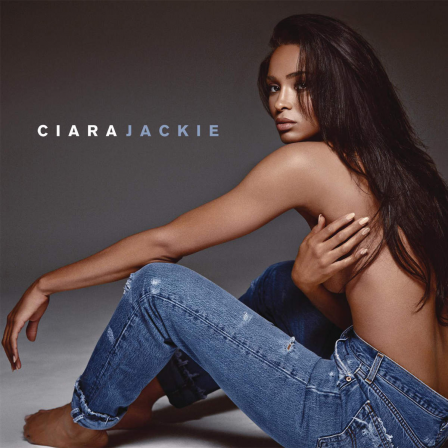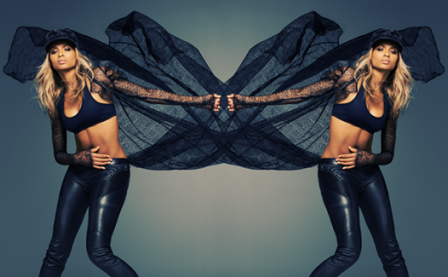Ciara’s Jackie as Locus of Contestation: Toward a Unifying and Generous Theory of Pop Music
What do we talk about when we talk about pop music? It seems that three prominent threads have, in this decade of publication, unravelled from this hot mess of an exigence: wide-eyed poptimism (which privileges populist aesthetics against claims of its inauthenticity), Foucault-informed capitalist criticism (which situates a given text’s aesthetic choices within a capitalist context), and semiotic or symbolic interpretation (which sees a given text as a cultural artifact). Each approach has its merits in identifying underlying problems and values in a given text and its context, yet each approach has its pitfalls as well, as each relies on making inferences (and inevitably judgments) with incomplete information. Ciara’s Jackie is stylistically and culturally situated in such a way that it evades these criticisms’ most scathing points of contention, attaining a high level of craft without provoking or inciting hyper-specific criticisms. In each case, Jackie is: a classically appealing and complete pop statement replete with strong hooks and dynamic bridges, a project funded and distributed by a major label with comparatively little marketing not already derived from Ciara’s cultivated image, and a document of popular aesthetics both contemporary and historical.
Although there isn’t much here that we haven’t heard before, Jackie doesn’t find Ciara rummaging through her past glories for stage-proven outfits; these tracks, though familiar, are built from entirely new skeletons, given life by a breath of fresh air that comes with new experiences and new stories. Like Mariah Carey’s excellent latest album, Me. I am Mariah… The Elusive Chanteuse (an unsung TMT favorite), there isn’t really any significant risk here; both Mariah and Ciara are well-established pop stars, and though both are music industry titans who have created and performed within whatever framework their labels have constructed based on perceived popular consciousness, both have strong and idiosyncratic voices (in terms of chops and in character) that have more often than not driven popular aesthetics into unforeseen places. Jackie, like other Ciara albums, employs a wide range of styles, some new and some nostalgic, and while as a complete unit it doesn’t feel like it’s particularly progressive, it is a strong example of how aesthetic boundaries have blurred in recent years. Jackie’s profound aesthetic vastness is most evident in five-minute opener “Jackie (B.M.F.),” which sounds like three distinct songs in one, switching between huge cinematic flourishes, leaned-back Southern trap blips, and skittering breakbeat snares. Another example of Ciara fiddling with production styles is “One Woman Army,” which starts with glitchy synths reminiscent of “Tinkerbell” by K-pop artist Ga-In. Although calling Ciara’s genre-hopping “experimental” would be somewhat of a stretch, Jackie succeeds as a pop album because of its complete commitment in embracing a plethora of expressive modalities and reducing them into bite-sized pieces without compromising their fidelity as sounds with powerful referential meanings.
Jackie is perhaps best appreciated as an album suspended in a satisfying balance between extremes. Sonically, Jackie isn’t mind-blowing, but it isn’t mind-numbing either; it is aggressively comfortable, and with each subsequent listen, it becomes increasingly mind-occupying. Jackie is also thematically cohesive without relying heavily on motif as a structuring factor. It is loosely “about” motherhood, but as this Clickhole article jests, motherhood is only one facet of a mother’s experience. That there are as many ballads as there are bangers as there are lullabies as there are lyrical firestorms on Jackie doesn’t obscure this album’s perspective; it only provides further evidence for Ciara’s expressive complexity and creativity within a conventional context. Its loose narrative also accounts for its own subversion with songs like “Lullaby,” which isn’t about an infant at all, but a love partner. Ultimately, Ciara is more aware of her ambitions here than ever before, and she meets them with an unrivaled sense of confidence and restraint; when a song calls for bad motherfuckery, Ciara comes through with a tight and economical scowl that speaks more than an entire verse could, and when a song calls for “lovemaking” levels of heat, she comes through with a voice like a silk nightgown that never derails into staggering melisma.
Jackie doesn’t often transcend its own well-established boundaries, and it doesn’t flow as ***Flawlessly as TMT favorites Beyoncé or 1989 (much of Jackie’s most interesting moments occur in its first half), yet it is a solid alternative for those craving that rare and varied pop gem that warrants repeated listens. As far as how it performs under scrutiny of those theories outlined above, it shines its brightest when those lenses pointed at it are free of cynicism and tinted with generosity. With time, however, generosity becomes a default way of participating in its offerings, as there is much more here worth delving into than is initially apparent. Jackie’s increasing returns upon relistens is a testament that whatever theory or combination of theories is employed in a pop album’s analysis, findings are always more fruitful when its smallest details are appreciated rather than overlooked.
More about: Ciara


